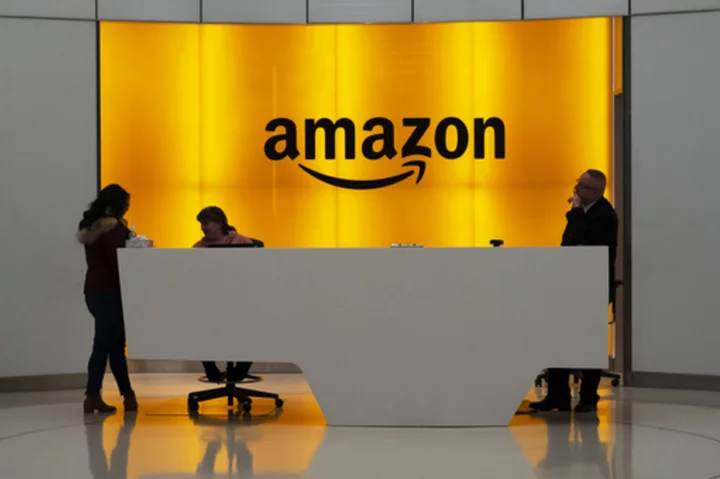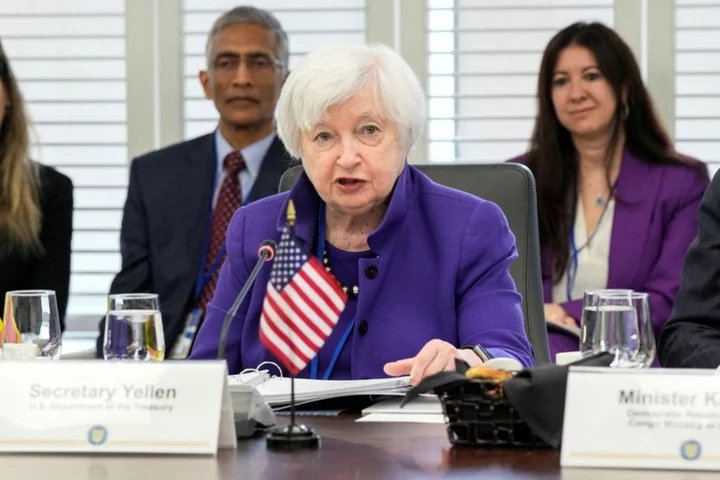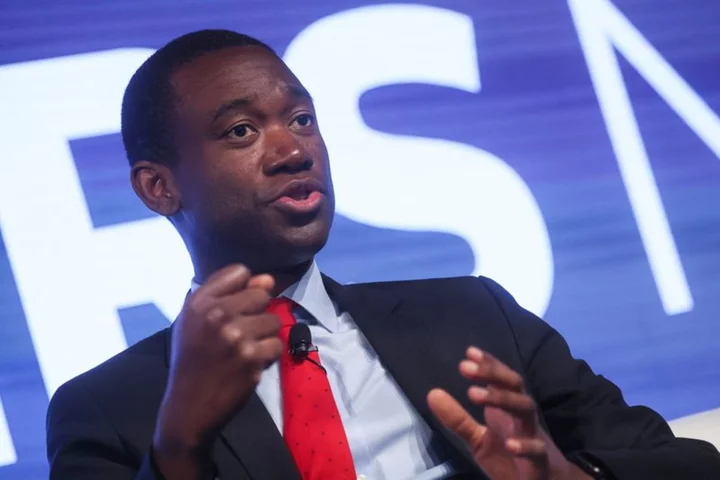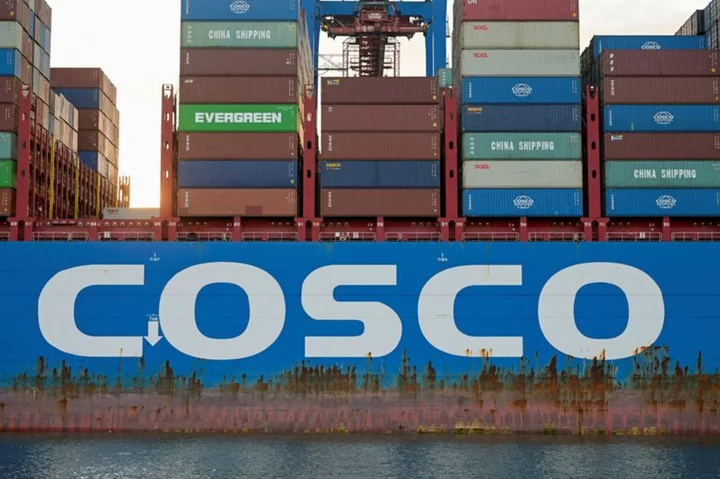NEW YORK (AP) — When the pandemic hit three years ago, Amazon was one of the few businesses that thrived.
Customers flocked to the online commerce site amid global lockdowns. But even when those lockdowns eventually lifted and Amazon's sales slowed as people returned to stores, the company could still count on its massive cash cow: Amazon Web Services.
Now even the lucrative cloud services business is feeling pressure.
Companies are trimming their expenses amid concerns about high inflation and fears that a recession might be around the corner. And many of them are being more cautious about their cloud costs, leading to a slowdown in one of Amazon's profitable businesses. The tech giant’s first quarter earnings report showed its cloud unit generated $21.4 billion and was growing at 16% in the first three months of this year — much slower than the 37% growth rate a year prior.
It is under those circumstances that AWS held its two-day security-focused cloud conference Tuesday in Anaheim, California. The meeting is one of several big events Amazon hosts annually to tout its cloud offerings to its clients or other companies that might be interested in storing their data on its vast network of servers around the world.
The conference, though, was overshadowed on Tuesday afternoon when an AWS outage hampered the ability of many customers to operate their sites. Amazon said it fixed the issue within four hours.
AWS is the market leader in the cloud arena, and its customers include some of the world’s biggest businesses and organizations, such as Netflix, Coca-Cola and government agencies. But Amazon executives have said the unit is facing short-term headwinds as companies look for ways to save money by reallocating their spending or cutting back on features they don’t need.
Results for the second quarter aren’t expected to be released until late July, but there’s some indication the slowdown hasn’t reversed course. The company told analysts in April that AWS’ growth rate for that month was 5% lower than the first quarter, souring the mood among investors who sent its share prices lower after hearing the news.
Google and Microsoft, which offer competing cloud businesses, posted strong showings in their respective businesses during the most recent quarter, but they’ve also seen some slowdown in recent months. Still, it’s easier for them to keep growing compared to Amazon, which can face more hurdles since it’s already a market leader and has to grow a larger customer base, said Sid Nag, vice president and cloud services analyst at the information-technology research and consulting firm Gartner.
Another challenge for Amazon, Nag says, is that businesses are increasingly using multiple cloud services and moving away from single providers, a move that can boost tech options and prevent companies from being reliant on only one vendor. The firm predicts more than 90% of businesses will use multiple providers by 2026, a jump from 76% in 2020.
“Amazon’s seeing an artifact of that phenomenon affecting their growth rate,” Nag said.
Despite the pullback, AWS is still expected to be a long-term revenue driver for Amazon. Nag said many companies can’t afford to spend the amount of money it takes to run their own data centers, which would require expensive equipment and real estate. And with this in mind, Amazon is making big investments.
Last month, the tech giant said it plans to spend more than $12 billion on cloud infrastructure in India by 2030, adding to multi-billion-dollar cloud investments it announced earlier this year in Malaysia and Australia. Amazon is also planning to build five new data centers in Oregon after it was awarded a controversial $1 billion tax break.
Generative AI, which recently boomed in popularity followed by the release of Open AI's ChatGPT, is another interest area for AWS. But Amazon seems to be playing catch-up to its competitors. Unlike Microsoft and Google, Amazon hasn’t made a splashy entrance into the market with its own chatbot or AI imaging tool. Instead, the company is aiming to lure in developers who can build generative AI applications on its cloud infrastructure.
The slowdown at AWS also comes Amazon’s core e-commerce business is experiencing declines in growth following the COVID-19 boom. The company has retained most of the gains it made during the pandemic, which is good news for the retailer. But it can be difficult to keep eking out more incremental gains off the back of its monumental pandemic-era growth, said Neil Saunders, managing director of GlobalData Retail.
Amazon is also facing more challenges in the grocery arena, an $800 billion market where it's attempting to gain market share with its Amazon Fresh and Go convenience stores, as well as Whole Foods, which it purchased in 2017. The company said in February it was shutting down some Amazon Fresh and Go stores that weren’t living up to their promise. It has also paused expansion on its Fresh supermarkets as it aims to find the right formula that will allow it to scale its business.
Analysts from the asset management firm Bernstein called on Jassy and Amazon’s board in an open letter published last week to make a decision about the company's physical retail business, exercise more focus on core areas like AWS and stop pursuing too many ideas in more ambitious areas, like health care and internet connectivity.
“We fully support Amazon’s efforts to uncover and capture the next AWS-sized opportunity,” the letter said. “But what we’ve seen recently is a company simply pursuing too many ideas, with weaker ideas taking away the oxygen, capital, and most importantly focus from the truly disruptive initiatives that ‘only Amazon can do.’”









